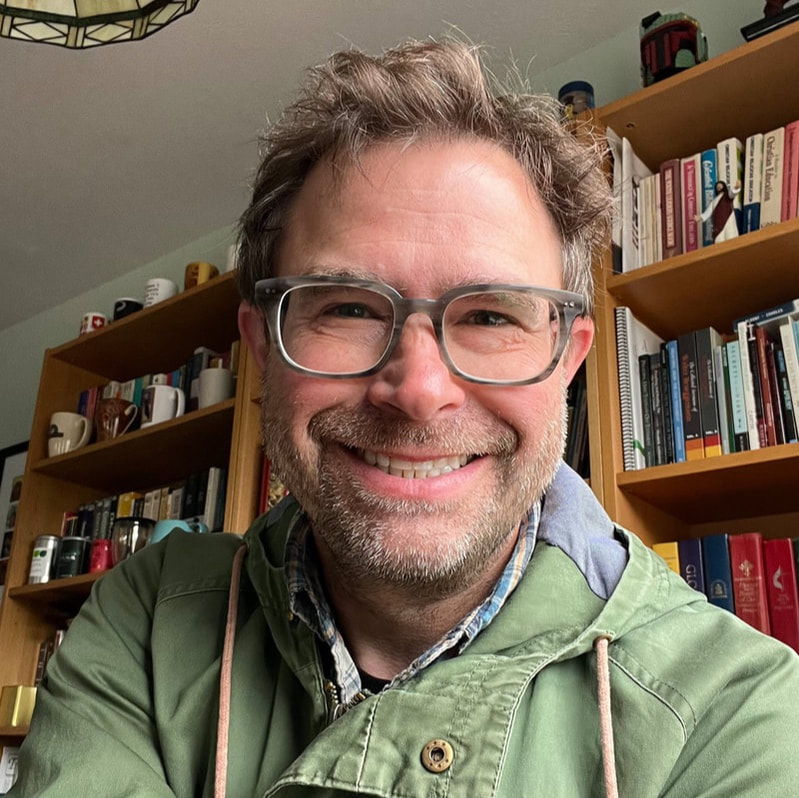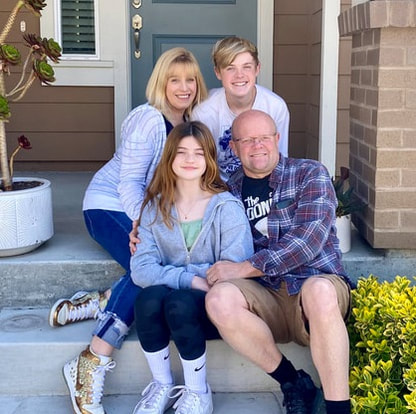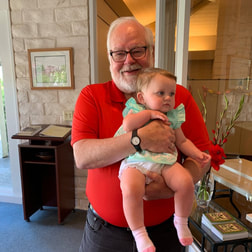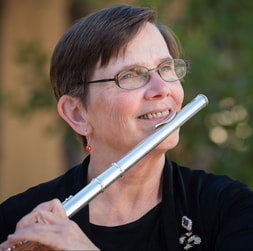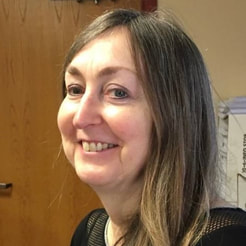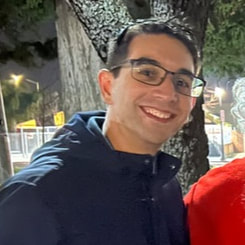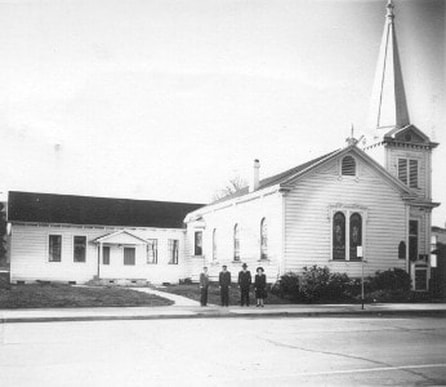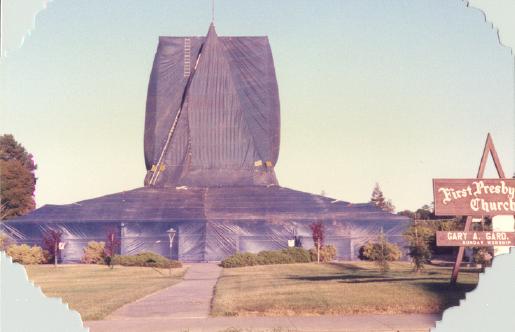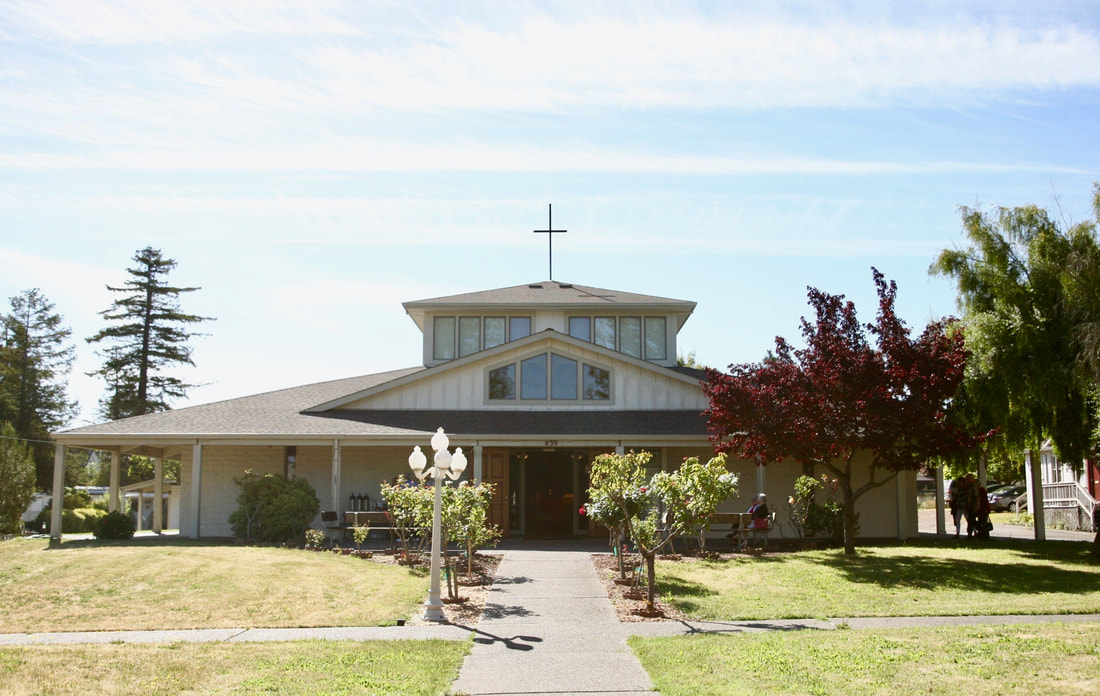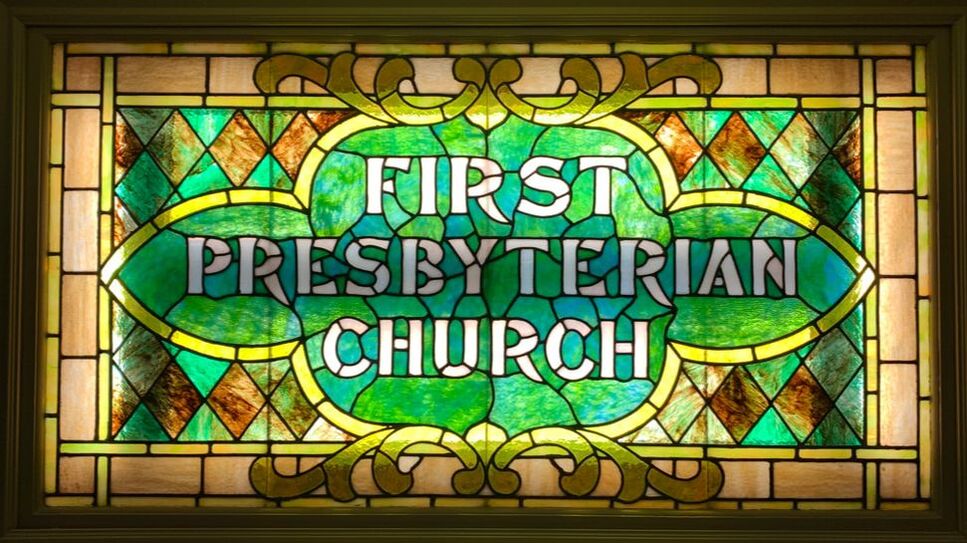MEET OUR STAFF |
Pastor John Chase
Pastor John joined our staff in 2013, having previously served churches in Seattle, WA, and Fairfield, CA. John received Bachelor of Arts degrees in Educational Ministry and Psychology from Seattle Pacific University, and a Masters of Divinity from Duke Divinity School. He and his wife, Tara, love living in Petaluma and spending time with their local family and three cats. You can spot John around town driving his 1965 Volvo 122s. He loves gardening, comics, movies, and great meals at local restaurants.
[email protected] |
Grete was born and raised in Petaluma, and attended Pepperdine University. As a member of the congregation since 2008, she loves attending church with her husband, Eddy and their two children, Trey and Lucy. When she isn't busy transporting kids to gymnastics competitions or band rehearsals, Grete loves baking and running. She has completed 8 full marathons and sometimes uses her baking talents to raise money for friends or organizations in need.
|
Jane started attending FPCP in January of 2015 and has been Music Director since 2018. She is honored to work with the faithful volunteers of the Music Ministry – especially those who worked so hard to keep the Music Ministry afloat during the Covid Times, the subsequent lockdown and qualified reopening. Jane holds master’s degrees in Music Performance and German Literature. She is also a Certified Arts Integration Specialist. She lives in Bodega Bay with her partner John and their English Bulldog, Beauregard. She loves walking and birding at Doran Beach.
|
Jenny Smith, Organist/Pianist
Having been born and raised in Petaluma, Jenny has been attending 1st Presbyterian as long as she can remember, from Sunday school, to Westminster Woods, and right through high school youth group. She became the church organist when she was 16, and played for four years, until leaving for college. Happily for her, soon after she returned to Petaluma in 1987 with a degree in music from CSU Chico, the organist position opened up, and she was able to return as organist/pianist once again. She feels blessed to have raised her two children here and been a part of this church family for so long.
|
Enrique Rojas, AVL Technician
Enrique was born in Caracas, Venezuela and moved to San Francisco, CA to continue his studies in jazz performance and further his career as a guitarist. He attended San Francisco State University, where he earned a degree in Jazz Guitar Performance. Enrique performs as a soloist for private events in wine country, while also working for the Santa Rosa Symphony, Sonoma State University, and SRJC. In addition to his career as a musician, he is trained and skilled in the art of recording, audio engineering, and lighting for live performances.
|
OUR HISTORY
|
It all began nearly 140 years ago in this small western frontier town.
The First Presbyterian Church's long history in Petaluma began in 1883, with forty-five charter members. That same year, the State granted the church its charter, and two years later, the first sanctuary was constructed downtown on Kentucky Street. Its spire rose high above the neighborhood, and its ten stained glass windows brightened its simple interior. Five of those original stained glass windows now adorn the current sanctuary. In April of 1906 the Great Earthquake virtually razed San Francisco and Santa Rosa, but Petaluma was for the most part unscathed. Refugees started pouring into Petaluma and First Presbyterian Church opened its doors to them. While some cared for those displaced by the earthquake, other church members ventured out into the devastated cities to help in the relief effort. In 1963, the congregation moved up the hill to 939 B Street, where a new sanctuary was constructed. The 1960's brought with it a depressed economy, and many social justice issues became center of attention in the United States and in the congregation. Churches, including First Presbyterian, supported controversial political causes. Active support was given to improvement in race relations, and affirmation was given to the interfaith march in Selma, Alabama. The 1970s found the congregation involved in many issues of local and national interest. The Deacons sponsored a Vietnamese refugee family who lived in a church-owned apartment. Members of the church also helped form FISH, a biblically-directed organization that provided short term emergency assistance of lodging, transportation, bus fares, meals, groceries, information, counseling, companionship, and utility bill payments. First Presbyterian also donated a small house, located on its campus, to provide lodging for needy persons. Also in the 70s, church members participated in the formation of PEP Housing to provide housing to the lowest income citizens, seniors, and people with disabilities. In 1976, First Presbyterian opened Happy Day Presbyterian Preschool on their campus. Happy Day grew to become one of the church's most successful community outreach programs. Some of those children are now members of First Presbyterian. In August 2021, Open Arms Playgarden Preschool moved onto campus, and the sounds of children playing, Monday through Friday, can once again be heard. In the early 2000s, the sanctuary was completely refurbished, including the tower as it now stands. This change symbolizes the ongoing evolution of God's church. From generation to generation, congregational patterns of worship and education, mission and service, fellowship and nurture have unfolded. Today we are focusing more and more on issues of social justice, creation care, inclusivity of LGBTQ+ people, and what it looks like to live into and embody God's Kingdom on earth as it is in heaven. |
The original chapel on Kentucky Street
The original B Street sanctuary
The B Street chapel as it stands today.
From the original sanctuary, now illuminated in our Fireside room.
|
W
"Earth is so thick with divine possibility that it is a wonder we can walk anywhere without cracking our shins on altars."
"Earth is so thick with divine possibility that it is a wonder we can walk anywhere without cracking our shins on altars."
- Barbara Brown Taylor
WHAT WE BELIEVE
First Presbyterian Church is a big tent kind of church where people believe all kinds of things. So, we don't often talk about what we ALL believe. What we care about is what people HEAR. And what you will hear at FPCP is what is often called "generous orthodoxy." Here are some of the things that you will hear when you visit.
We are all sinners and saints. For too long, the Church has turned its back on the very people who need the Gospel the most because they didn’t talk right or look right or act right. As it turns out, we are all “those people” — sinners, broken, in need of the grace of Christ. At the same time, we’re also all the chosen people of God, redeemed in God’s infinite mercy and love. Our identity is grounded in the recognition that we simultaneously fall short of God’s love, and receive it continually as a gift that has no bounds.
We are not experts. We are all amateurs. There are no experts here – meaning no one understands the fullness of faith, the Trinity, or grace. This is why we share in leadership and why the pastor doesn’t do everything. This is why we count on everyone – from children to young adults to the middle-aged and older among us – to fully participate in the life of our community. Because all of us together are learning, screwing up, growing – and in need of confession, absolution, and grace.
We will disappoint you. At FPCP, we invite you to come exactly as you are. With your flaws and strengths, joys and sorrows, hopes and fears. Because we show up in all our humanity, that means that sometimes, as a community and as individuals, we will fail you — we will say the wrong thing, neglect to take action, fail to do our part, or ignore each other. We confess that we have all disappointed this community and also been disappointed by it. We bear witness, that when we stay through disappointment, we experience and receive God’s healing grace.
We need wisdom from our ancestors. We learn from Holy Scripture and prayer, from the prophets and theologians, from the many and diverse faithful who have come before us. The rhythms of the Church and its ancient rituals continue to shape our liturgy today. God’s grace draws us into a stream that flows from the beginning of time, and we gratefully inherit the wisdom and insights of people who show us the meaning of the Gospel through eyes so different from our own.
We need an open Table. In our Communion/Lord's Supper/Eucharist celebration, all are welcome to the open Table. Everyone, without exception, is invited to come forward and receive the bread and the cup, which symbolize for us the Body and Blood of Christ. The good news for us, and the bad news for our egos, is that, without exception, all are welcome to the Table. We need this reminder that God’s abundant grace is always available to us. And also to those we might prefer to exclude. At the Table, we sinners celebrate the love of God that makes us saints.
The gospel is everywhere. God’s grace is the common denominator that binds us all, and we seek to find the good news every day and every where: in the awful, the sublime, and the mundane. Sometimes this feels like the worst good news –because grace shows up everywhere, often where we don’t expect, or even want, to find it. Grace feeds our souls and breaks our hearts, heals and challenges us, and, thanks be to God, never runs out.
God's reign is here, but not complete. Our world is a mix of grief and joy, failure and success, dreams dashed and hopes fulfilled. Yet, we long to believe that our reality, broken as it may be, is steeped in God’s love. This gives us the courage we need to love the world as it is. At the same time, grace prompts us to struggle for possibilities still hidden – visions of justice and mercy, transforming the brokenness of our world into the shalom of God. Therefore, we aspire to tell the truth, to call a thing what it actually is. And we begin by confessing that the Church has betrayed you, that we have betrayed each other, and that we will betray each other again. Our hope is not in our capacity to improve our condition on our own, but in the grace, peace, and mercy of Christ.
God calls us to be there for one another. Our congregation can be (and has been for many) a spiritual ER. Some of us are exhausted from life, addiction, depression, anxiety, family rejection, caring for loved ones, serving others at work and at home. Sometimes, even showing up for church can feel like a pretty big accomplishment. But showing up for worship, for work, for fellowship is one way that we help make grace real for each other. My healing is bound up in yours, so whenever and however we each show up, God’s love shows up for us both.
It's about participation, not perfection. Our work together – our worship liturgy and the liturgy of our lives – does not have to be “perfect” to be sacred. We choose people over performance. What we do is rooted in the knowledge that we are not perfect, nor will we ever be. We’ll mess up, probably more than once. We’re still part of making church happen. Anti-excellence levels the playing field, inviting us all to participate, from the newcomer to the old-timer to everyone in between.
We share the grace of Christ that has been freely given to us. The cross of Christ, his death and resurrection, is a gift that is earned by none and given to all. We often struggle to accept this gift of grace as the final word: God loves us madly just as we are, today, flaws and all. As the priesthood of all believers, made one in Christ through baptism, we are all living sacraments, instruments of God’s grace, and we pray that God will continue breaking our hearts so that we may give away the grace we have already received. We aspire, with God’s help, to do this: to be God’s sacrament in the world, to strive for justice and peace among all people, to respect the dignity of every human being.
We are all sinners and saints. For too long, the Church has turned its back on the very people who need the Gospel the most because they didn’t talk right or look right or act right. As it turns out, we are all “those people” — sinners, broken, in need of the grace of Christ. At the same time, we’re also all the chosen people of God, redeemed in God’s infinite mercy and love. Our identity is grounded in the recognition that we simultaneously fall short of God’s love, and receive it continually as a gift that has no bounds.
We are not experts. We are all amateurs. There are no experts here – meaning no one understands the fullness of faith, the Trinity, or grace. This is why we share in leadership and why the pastor doesn’t do everything. This is why we count on everyone – from children to young adults to the middle-aged and older among us – to fully participate in the life of our community. Because all of us together are learning, screwing up, growing – and in need of confession, absolution, and grace.
We will disappoint you. At FPCP, we invite you to come exactly as you are. With your flaws and strengths, joys and sorrows, hopes and fears. Because we show up in all our humanity, that means that sometimes, as a community and as individuals, we will fail you — we will say the wrong thing, neglect to take action, fail to do our part, or ignore each other. We confess that we have all disappointed this community and also been disappointed by it. We bear witness, that when we stay through disappointment, we experience and receive God’s healing grace.
We need wisdom from our ancestors. We learn from Holy Scripture and prayer, from the prophets and theologians, from the many and diverse faithful who have come before us. The rhythms of the Church and its ancient rituals continue to shape our liturgy today. God’s grace draws us into a stream that flows from the beginning of time, and we gratefully inherit the wisdom and insights of people who show us the meaning of the Gospel through eyes so different from our own.
We need an open Table. In our Communion/Lord's Supper/Eucharist celebration, all are welcome to the open Table. Everyone, without exception, is invited to come forward and receive the bread and the cup, which symbolize for us the Body and Blood of Christ. The good news for us, and the bad news for our egos, is that, without exception, all are welcome to the Table. We need this reminder that God’s abundant grace is always available to us. And also to those we might prefer to exclude. At the Table, we sinners celebrate the love of God that makes us saints.
The gospel is everywhere. God’s grace is the common denominator that binds us all, and we seek to find the good news every day and every where: in the awful, the sublime, and the mundane. Sometimes this feels like the worst good news –because grace shows up everywhere, often where we don’t expect, or even want, to find it. Grace feeds our souls and breaks our hearts, heals and challenges us, and, thanks be to God, never runs out.
God's reign is here, but not complete. Our world is a mix of grief and joy, failure and success, dreams dashed and hopes fulfilled. Yet, we long to believe that our reality, broken as it may be, is steeped in God’s love. This gives us the courage we need to love the world as it is. At the same time, grace prompts us to struggle for possibilities still hidden – visions of justice and mercy, transforming the brokenness of our world into the shalom of God. Therefore, we aspire to tell the truth, to call a thing what it actually is. And we begin by confessing that the Church has betrayed you, that we have betrayed each other, and that we will betray each other again. Our hope is not in our capacity to improve our condition on our own, but in the grace, peace, and mercy of Christ.
God calls us to be there for one another. Our congregation can be (and has been for many) a spiritual ER. Some of us are exhausted from life, addiction, depression, anxiety, family rejection, caring for loved ones, serving others at work and at home. Sometimes, even showing up for church can feel like a pretty big accomplishment. But showing up for worship, for work, for fellowship is one way that we help make grace real for each other. My healing is bound up in yours, so whenever and however we each show up, God’s love shows up for us both.
It's about participation, not perfection. Our work together – our worship liturgy and the liturgy of our lives – does not have to be “perfect” to be sacred. We choose people over performance. What we do is rooted in the knowledge that we are not perfect, nor will we ever be. We’ll mess up, probably more than once. We’re still part of making church happen. Anti-excellence levels the playing field, inviting us all to participate, from the newcomer to the old-timer to everyone in between.
We share the grace of Christ that has been freely given to us. The cross of Christ, his death and resurrection, is a gift that is earned by none and given to all. We often struggle to accept this gift of grace as the final word: God loves us madly just as we are, today, flaws and all. As the priesthood of all believers, made one in Christ through baptism, we are all living sacraments, instruments of God’s grace, and we pray that God will continue breaking our hearts so that we may give away the grace we have already received. We aspire, with God’s help, to do this: to be God’s sacrament in the world, to strive for justice and peace among all people, to respect the dignity of every human being.
